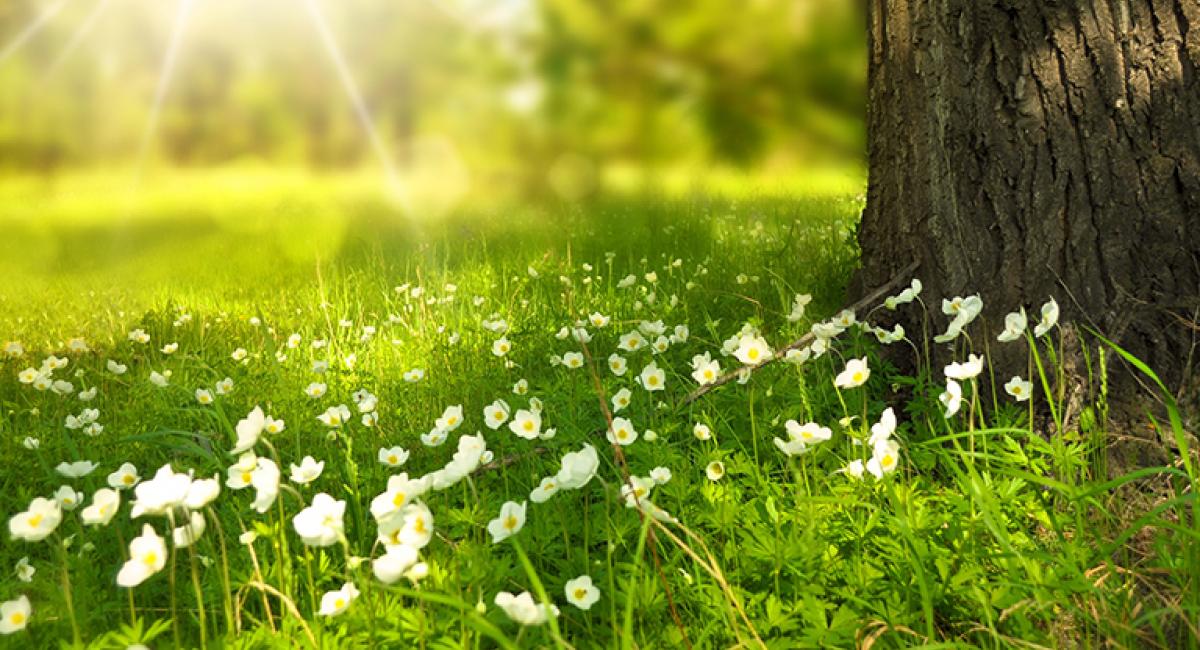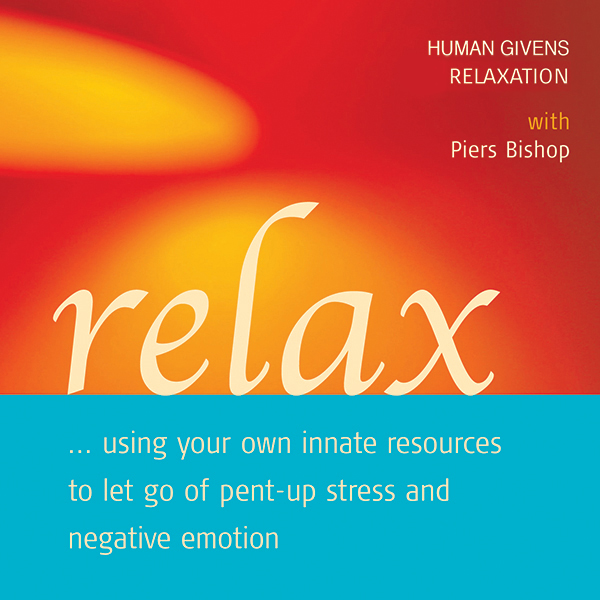It’s elemental, my dear
Green space, blue space, vitamin N, the great outdoors, animal therapy, the nature cure: whatever we want to call it and however we want to engage with it, most of us are aware that communing with our natural world is purported to be good for us. But why is time in nature so beneficial and how does it make us feel better?
The great strength of the HG approach is that it takes into account - indeed is based upon - our basic human needs and resources - the things that we need to survive and thrive, and what we have within us that helps us to meet those needs.
So what do we need from Nature? Well...everything. We are living, breathing entities for whom involvement with our environment is vital to survival. In past times this was obvious - we had to find food, water, shelter and safety by interacting with nature (hunting animals, gathering fruits, making use of natural materials to build shelters and so on). Now that we “find” these things in shops we are physically and mentally distanced from their actual source - and tend to forget that it’s still the environment around us that provides all our survival needs.

Reasons for the disconnect is clear - the vast majority of us no longer have to hike through the forest gathering nuts and fruits, swim and dive to gather seafoods, run to kill prey or hack down vegetation to build shelters. To a great extent we have harnessed our habitat, domesticated it, farmed it, invented unnatural versions of it, plastic wrapped it and assigned a monetary value to it. Most of us now live in a world where we buy stuff from shops rather than gaining it directly from our environment.
But here’s the thing: our brains are still wired to interact with our environment. Trudging round supermarket aisles just doesn’t tick the right boxes in our primitive minds, doesn’t make use of all our senses, doesn’t raise our awareness to take in all factors and assess possibilities, risks, opportunities and outcomes. We could stretch a point and claim that a trip to the shops does all these things, but being on the hunt for a bargain isn’t on a par with being alert to a pouncing tiger. Not even close.
Removing ourselves from what we ironically call our ‘creature comforts’ and out into the less safe environment of nature, therefore helps us to feel more distinctly awake, alert, vibrant and alive: all pretty amazing ‘feelgood’ factors.
To a large extent, where we go and what we do are the finer details of the essential element of connecting with nature. Of course a four day hike through the mountains is fantastic, but a city park walk every day is going to do more good than a week’s walking holiday once a year (better still, do both), and for anyone housebound, pot plants are a way of bringing nature indoors, and a garden full of plants that attract bees, butterflies and birds can bring immense joy, even if only viewed through the kitchen window.

For those of us lucky enough to be fit and able to get out, what might bring the greatest benefits? This really is a case of each to their own, with some needing to heighten that element of risk (kite surfing, sky diving) whilst others seek peace (a walk through the green glades of native woodland, or paddling along a calm seashore) and yet others find meaning in knowing more (through habitat research, or animal identification), in teaching others (guided walks through nature reserves, sailing schools, green gyms) and in growing food (farming, horticulture).
Growing things and getting in touch with the land is an often overlooked means by which we can all find greater fulfilment in our lives.
For those who find themselves isolated due to disability or simply ‘not fitting in’ for all manner of reasons, working with nature and the natural world offers a positive lifeline that has no equal.
Alan Titchmarsh - gardener, presenter and novelist
The key thing here is to find out what makes you feel better (meditate under a tree, swim in the sea, climb a hill, work with animals, grow food, whittle sticks, weave willow, forage for wild food) and then make sure you make regular time and space for that activity. Prioritise it, and you’ll notice the benefits in an amazingly short space of time. As well as a general feeling of wellbeing, communing with nature can take us out of our own head and spark a sense of connection with the wider world, leading to a greater sense of meaning in life. Looking outwardly helps to diminish internal preoccupations and lift us out of anxiety and depression.
Nature writer Richard Mabey chronicled his journey through a depressive phase in his book Nature Cure, candidly detailing how closed off from everything he became, and how it was eventually the return of the swifts and the nesting of the swallows, the call of the cuckoo, the turns of season and the rise and fall of tides that lifted him out of himself and back into the world.
I can’t do without wild creatures, and suspect our species can’t either. To lose contact with our origins, with the wellsprings of life, with patterns of evolution and wisdom that are not controlled by us, with other ways of being against which to measure ourselves, with our friends, would have consequences we could scarcely bring ourselves to predict. To live with them only as dreams and legends is a vision of isolation that is hard to contemplate.
Richard Mabey
Richard goes on to discuss how nature - the “non-human” world - can help us (as shown in the intruiging examples used by the Biomimicry Institute) and asserts that we should consider ourselves part of nature, and discard our arrogant notion that we are in charge, as stewards or landlords of the planet. After all, the biosphere has managed without us for epochs, and may well continue to exist beyond that of the human species.
Having said that we must all find our own favourite activities, there are a few points to consider. For instance, the positive consequences of negative ions might help you to decide to head for a beach walk. Negative ions (microscopic negatively charged molecules also called anions) are found in extremely high concentrations near the ocean, and can pass through our skin cells and through our lungs when we breathe in that sea air. On reaching our bloodstream they trigger biochemical reactions that increase levels of serotonin, helping to alleviate depression, relieve stress, boost mental energy and create higher alertness.
Negative ions also clear the air of airborne allergens such as pollen, mould spores, bacteria and viruses and help counteract the positive charge (cations) associated with computers and static of manmade carpets and fabrics that can be so deletrious to health and energy in offices. There are negative ion machines (air purifiers) that can help clear the air in offices but, better still, open a window, install indoor plants and go for an outdoor walk at lunchtime.
Another consideration is that our innate need to connect extends beyond human, yet we are rapidly forgetting this. Environmental activist George Monbiot wrote “Hope for humanity lies in recognising our animal nature” as a letter to his infant daughter:
In my childhood it would never have occurred to me that birds as common as the cuckoo, the sparrow and the starling could suffer so rapid a decline that I would live to see them classed as endangered in this country. I remember the astonishing variety of moths that clustered on the windows on warm summer nights, the eels, dense as wickerwork, moving downriver every autumn, field mushrooms nosing through grassy fields in their thousands - these are sights that you might never see…this is where hope lies...right at the beginning, with the recognition that you, like all of us, arose from and belong to the natural world
And George wonders if our children will champion nature, given that they spend more than half of their time in front of a screen? His suggestion to ‘rewild’ kids, by teaching them to grow and cook their own food, is echoed by journalist and author Richard Louv in his book Last child in the woods.
There are increasing numbers of therapies and organisations who work in recognition of our need to connect with nature. Horses and dogs are especially good at communing with humans, and animal assisted therapy can help people from all walks of life, as organisations such as Turn about Pegasus, Paws for Progress (for young offenders) and Horseback UK (for military veterans) show. Places like Redhall Walled Garden, (Edinburgh), Stepney City Farm (East London) and Sweet Tree farm (Watford) offer ‘therapy’ through animal care and food growing activities. On a simpler level, pets give companionship and a reason to get out for a walk and meet others.
All these organisations are utilizing the long known fact that we have a great affinity with our fellow species on this planet - we are more alike than we know, and have the same basic essential needs and similar resources. For those lucky enough to work with nature, there can be a deep bond and many needs met:
To be part of the natural world, to be sensitive to it and to be aware of your role in it, is hugely rewarding and personally fulfilling on many levels. Seeing your efforts make changes for the better, however small, gives a deep and abiding sense of purpose, which is beyond compare.
Jack Fleming, RSPB
There is also the thought that poet Ted Hughes explores in Swifts, that the seasonal return of migrating birds, who cross warring nations and unstable climate zones, as our version of miners’ canaries - if they are back, the world must still be OK.
They’ve made it again, Which means the globe’s still working, the Creation’s
Still waking refreshed, our summer’s Still all to come
from Swifts, by Ted Hughes
Nature holds “memory cues” for all of us - time, season, species - the smell of Spring blossom, the arrival/departure of migrant birds, tadpoles transforming into frogs and caterpillars emerging into butterflies - and gives us a sense of “earthing” when we physically connect with it (walking barefoot, working with clay, climbing trees).
If we describe someone as being “down to earth” or “salt of the earth” that’s a compliment, that’s a person we feel we can trust and rely upon - a sense of knowing where we stand, where we are.
We live in a world of short-focus - computers, phones, walls, the urban skyscape, and it comes as a lovely surprise to relax one’s focus to a distant horizon - where sea meets sky, or as the sun rises or drops beyond distant mountains. The physical relaxing of our eye muscles helps our brains to relax as well: one can feel a relaxation and “opening out” of the eye muscles, then the facial muscles, forehead, scalp, neck, body and brain. We can correspondingly broaden and lengthen our perspective, taking a look at our situation through our observing self, seeing it in perspective and from different angles, often leading to clearer thinking, greater understanding and decisive moments.
All of us humans - whether we want to battle sea storms, or study rare species, marvel at remarkable trees, retrace historical journeys or ‘conquer’ mountains, interact with tiny animals, or huge ones, or just sit on a hillside enjoying the long view….are following an innate quest, or answering a thirst - a drive to meet with and connect with the world around is, which of course comes right back to getting our needs met - as living beings we need to connect with our environment in order to survive.
Thankfully there are still places on this crowded planet where we can feel free of the buzz and frenzy of humanity. For me, a remote beach - because it has no signs of human interference or influence - is the kind of place where I can divest myself of everything - all the day to day materialistic, societal, work, family, financial, political and so on - stuff that tends to litter my mind - and leaving all that behind me in a heap on the beach, I can walk and walk and walk - metaphorically “naked” - stretching my eyes to that cool blue horizon, where sky meets sea, and achieve a kind of “tabula rasa” - an absence of ideas, goals, ambitions, a clean slate and a mind open to belonging to, and connecting with, the universe.
There is something about witnessing nature in all its forms - animals, insects, plants, water - going about its business without any need to refer to what the human race is up to, that gets me totally out of my own small matters and into another dimension.
© Julia Welstead 2020. This article is based on Julia's talk given at the 2016 HG Conference in Dublin.
Latest Tweets:
Tweets by humangivensLatest News:
HG practitioner participates in global congress
HG practitioner Felicity Jaffrey, who lives and works in Egypt, received the extraordinary honour of being invited to speak at Egypt’s hugely prestigious Global Congress on Population, Health and Human Development (PHDC24) in Cairo in October.
SCoPEd - latest update
The six SCoPEd partners have published their latest update on the important work currently underway with regards to the SCoPEd framework implementation, governance and impact assessment.
Date posted: 14/02/2024













